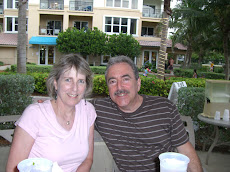 I am always looking for interesting commentary on creativity and innovation, and I saw this blog by Garrick Schmick of Digital Next at AdAge on creativity and crowdsourcing. Let's see what he says. Thank you to GeoCities for the image.
I am always looking for interesting commentary on creativity and innovation, and I saw this blog by Garrick Schmick of Digital Next at AdAge on creativity and crowdsourcing. Let's see what he says. Thank you to GeoCities for the image.He writes, "We typically think of "creativity" as a singular effort with the Steve Jobs or Lee Clows of the world -- the solitary individual known as much for their personality as their work -- at the helm. But creativity has always been a social activity. Today's creative agencies are supposed to be hothouses of ideas with charismatic leaders and collaborative teams. Fostering a creative culture counts -- after all, Warhol's factory wasn't just a live/work loft. But what happens when the technology behind crowdsourcing makes creativity a social activity that knows no geographic bounds? Where does the creative produced by the collective take us? Do we visit wild new frontiers or does a herd mentality take hold?"






